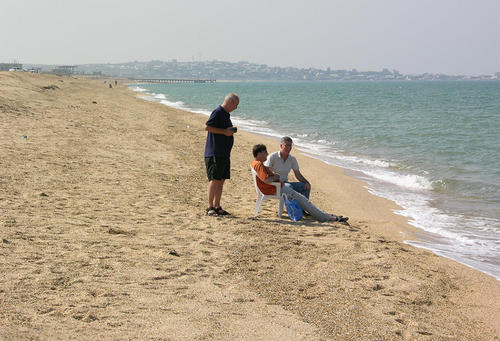Treasure chest of the Caspian Sea – how it falls victim to the oil boom
First broadcast on RBB Inforadio, “World Views” - Around a thousand animal and plant species live here that do not exist anywhere else on earth. The extraction and transport of fossil fuels without consideration for the environment must no longer exi
May 31, 2021
Treasure chest of the Caspian Sea – how it falls victim to the oil boom
Play Video
First broadcast on RBB Inforadio, “Weltsichten”, November 25, 2007, 11:45 a.m. (15 minutes), editor: Gabriele Heuser
Background and content
The price of oil is higher than ever and the competition for the remaining resources is becoming increasingly fierce. A region that has increasingly come into energy policy focus in recent years is the Caspian Sea. Underneath this largest lake on our planet lie large gas and oil reserves, which are expected to play an important role in the future energy supply of the European Union, but also for that of its economic competitors USA, China and India. This creates a new responsibility for the EU towards the unique “Caspian Sea ecosystem”. Around a thousand species of animals and plants live here that are found nowhere else on earth. The extraction and transport of fossil fuels without consideration for the environment must no longer exist. The ecological condition of the Caspis is already worrying. The sustainable alternative to gas and oil production, the fishing industry, is threatened in its existence. The declarations of intent on environmental protection outlined at the environmental conference of the states bordering the Caspian Sea in Baku, October 2007, with the participation of Germany, are a glimmer of hope. Taking politicians at their word, an interdisciplinary research group at the Free University of Berlin wants to ensure scientific enlightenment and transparency and attempt to help shape a sustainable future for the Caspian region.
